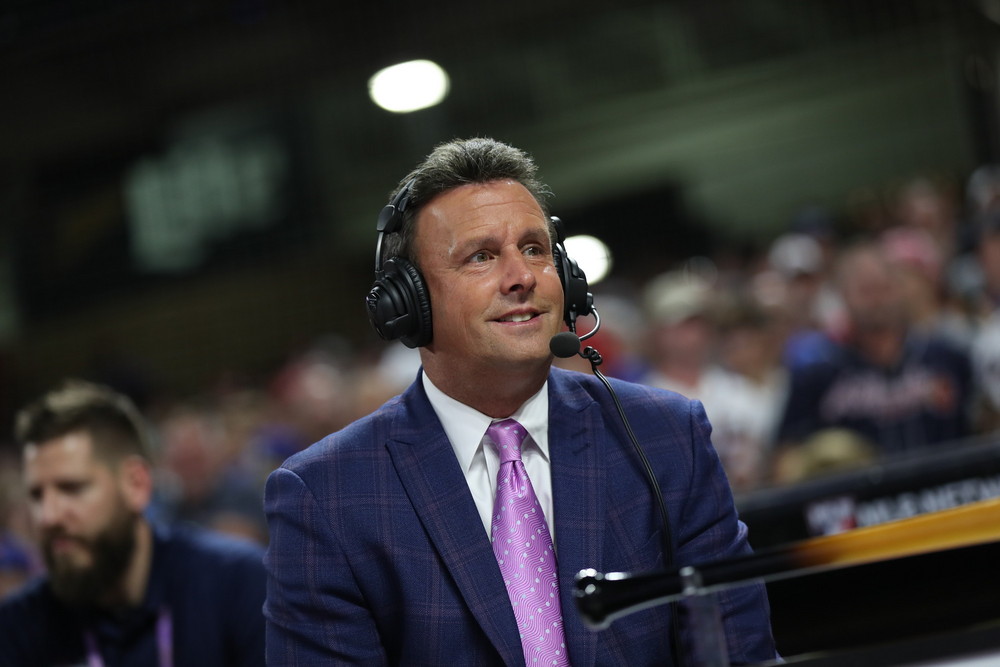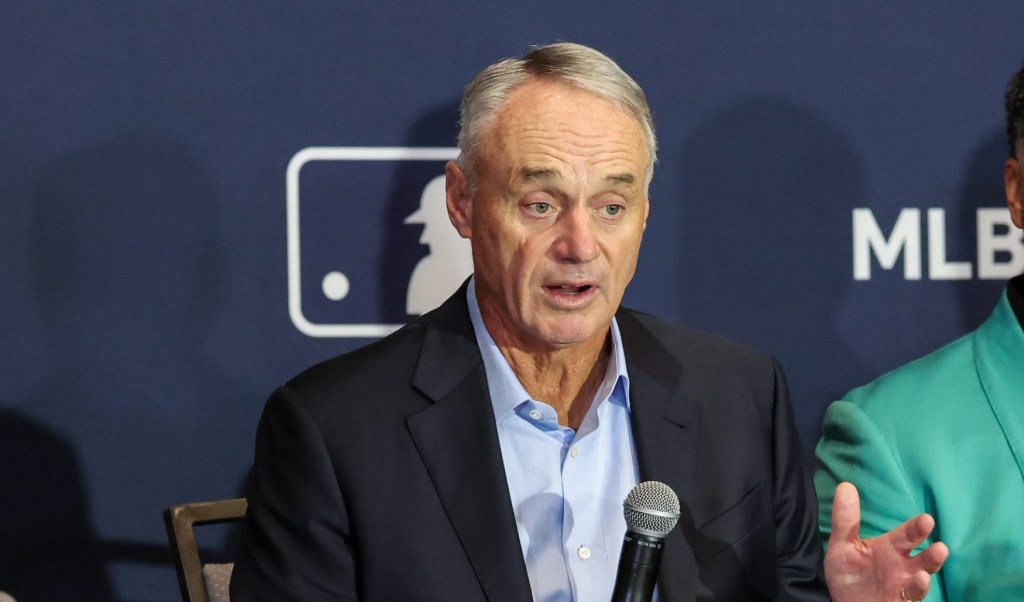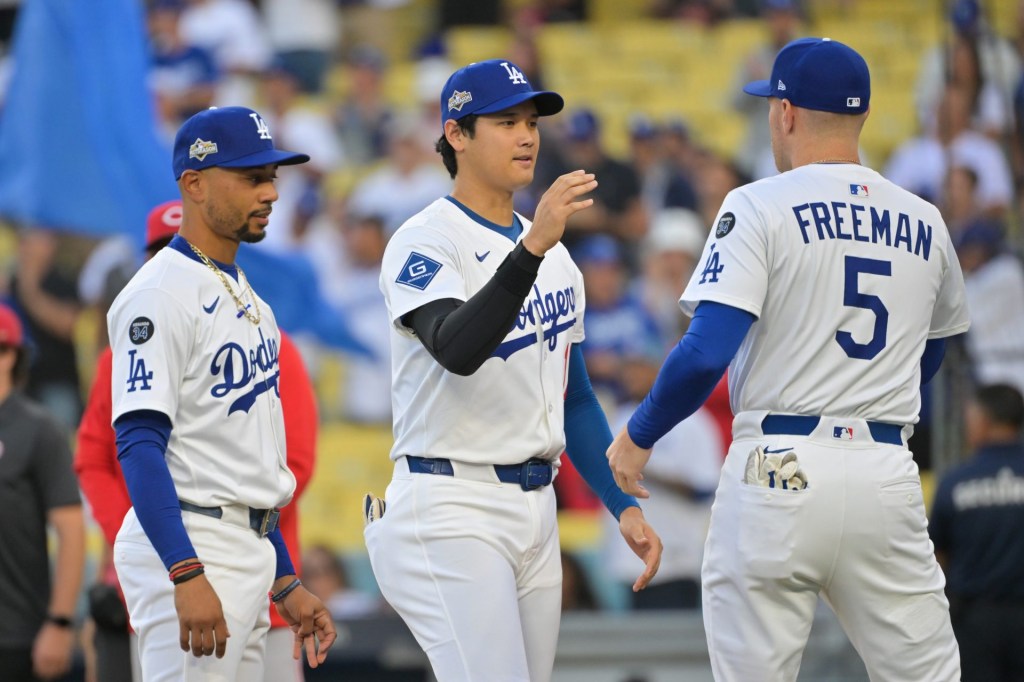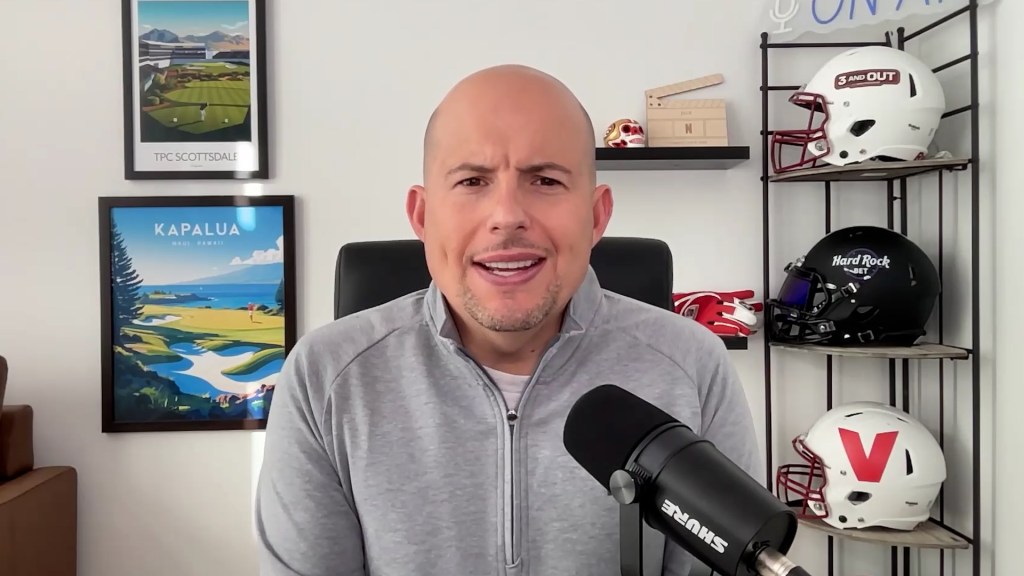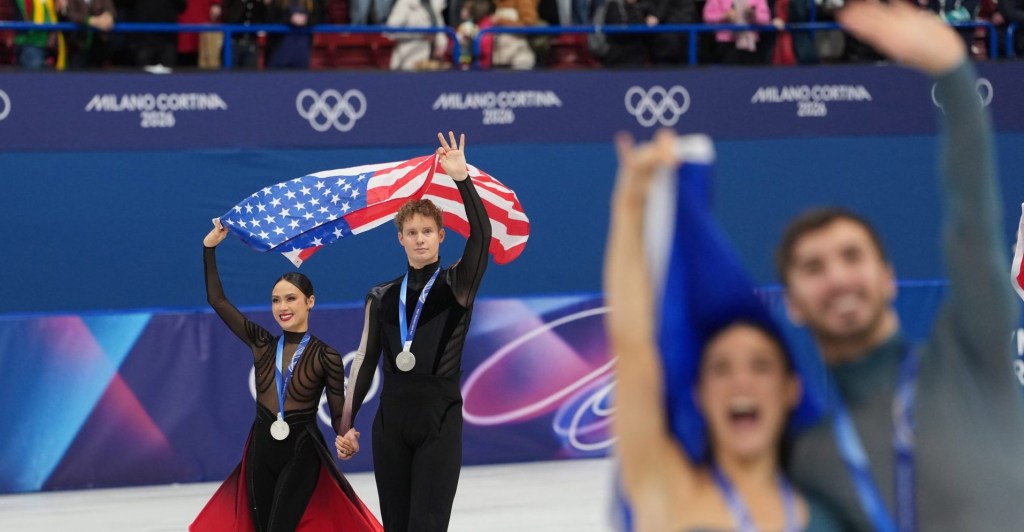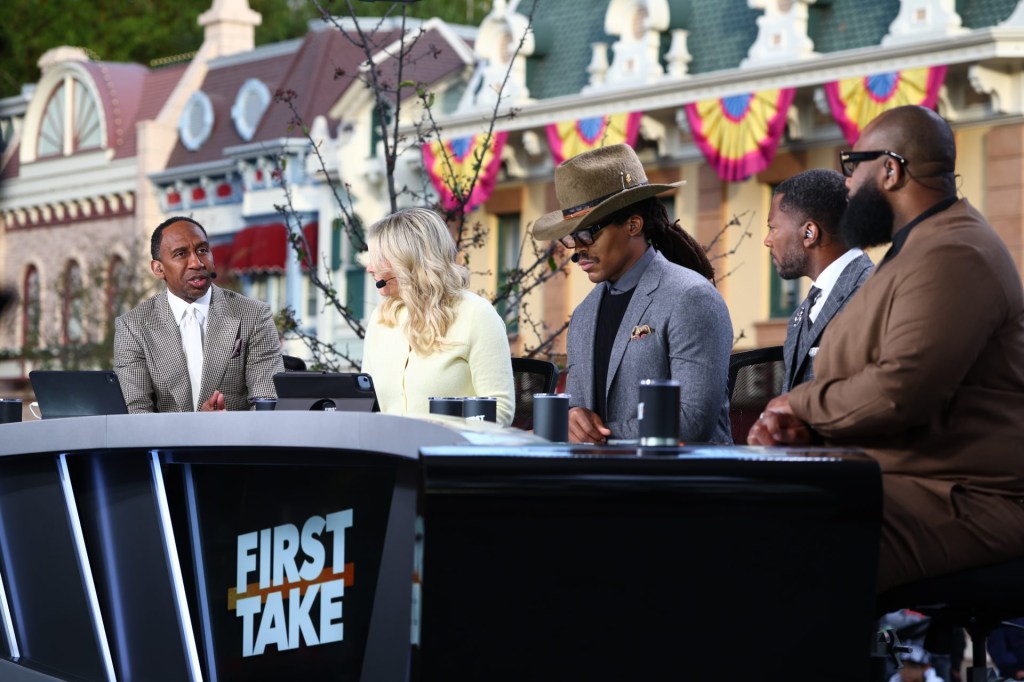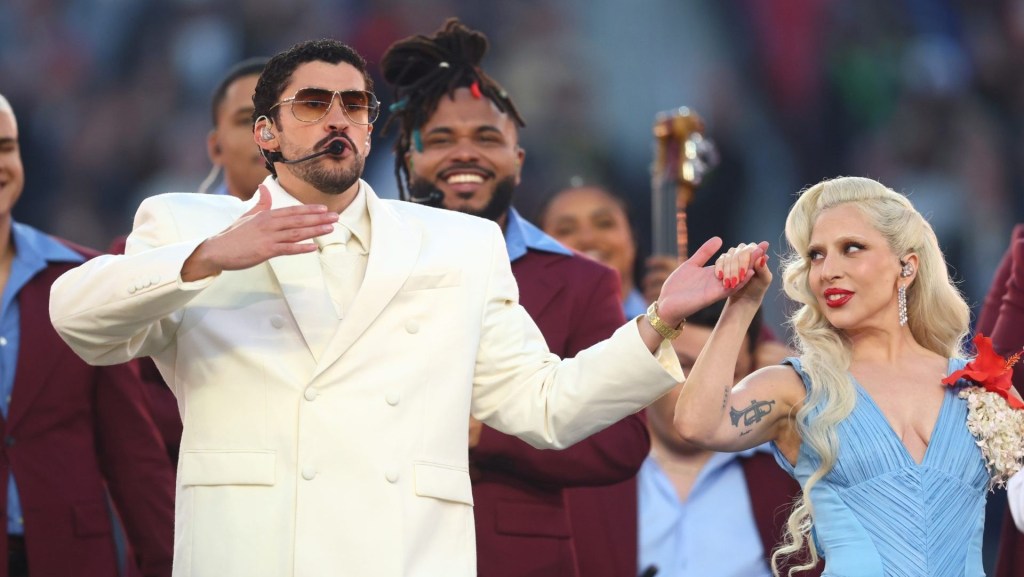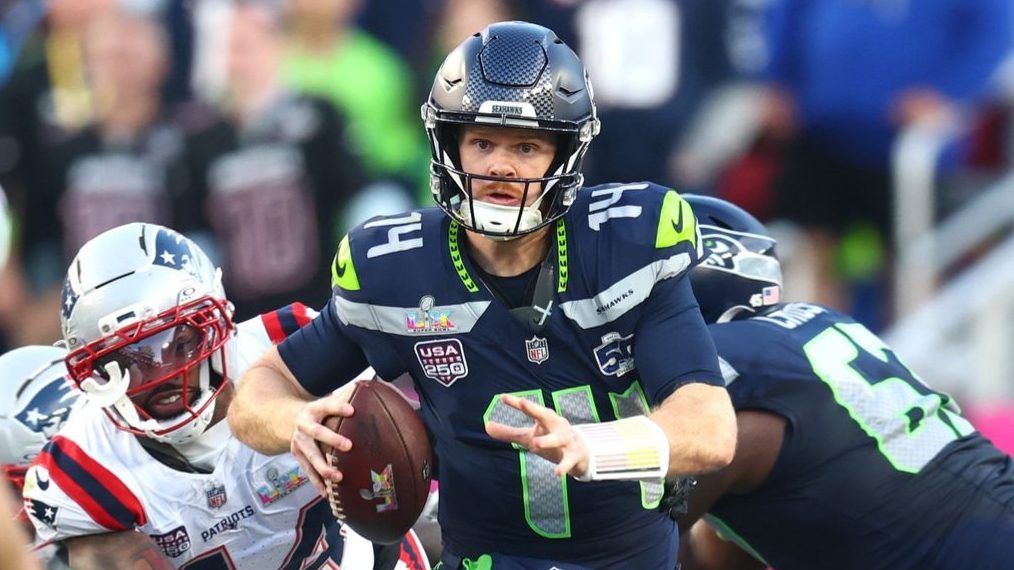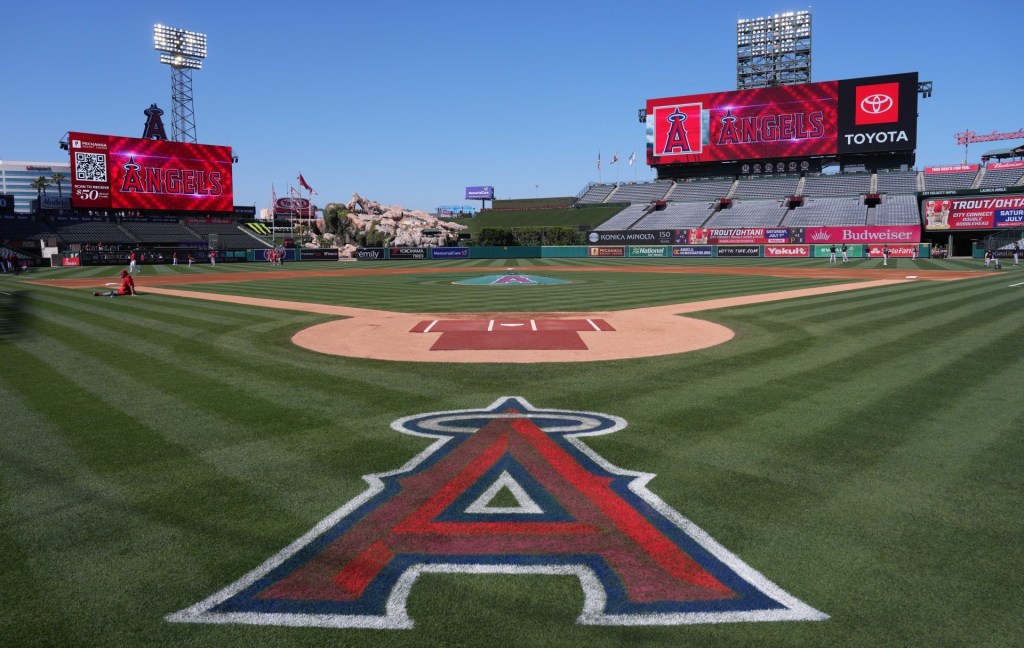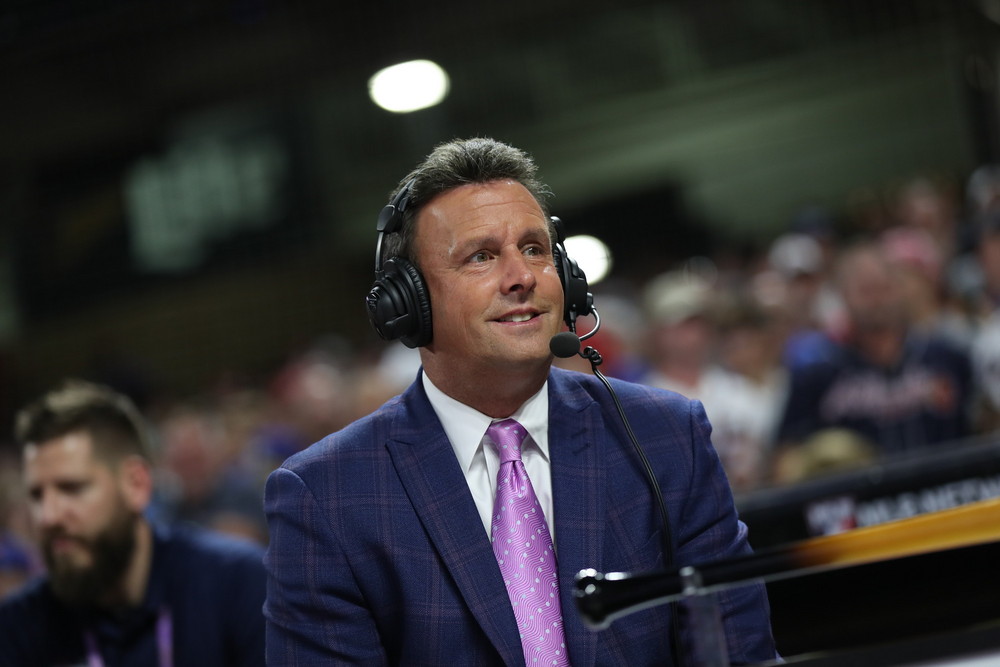
South Korea’s KBO League, the top-tier baseball league in the country, has plenty of things that normally would stand out to the sport’s purists, from players who’ve turned the bat flip into an art form to cheerleaders dancing on dugouts. Now added to that mix are umpires wearing masks and gloves and no fans watching in the stands.
U.S. sports fans will get a good look at one of the first leagues globally to return to live action thanks to ESPN, which struck a deal to televise six games a week as well as the KBO’s entire 144-game season.
As part of the agreement to become the KBO’s exclusive English-language partner, ESPN’s Karl Ravech, Jessica Mendoza, Eduardo Perez, Jon Sciambi, and Kyle Peterson will call the games remotely from their home studios in the U.S.
FOS spoke to Ravech, the longtime host of ‘Baseball Tonight’ and ESPN’s Little League coverage, just hours before he and Perez were scheduled to call the league’s opening day game between the NC Dinos and Samsung Lions.
FRONT OFFICE SPORTS: So ESPN’s back in the live baseball business. What are your expectations?
KARL RAVECH: I think it will be very exciting for people. I think anything live right now is great. This is the season for baseball. So I think it’s appropriate. It’s really a neat opportunity.
FOS: How are you preparing to call games with players you don’t know? Is this like cramming for a final exam in one night?
KR: That’s 100% accurate. I’m hopeful. I fall back on my Little League experience and some World Baseball Classic experience. That you have an audience hungry for the game. The names are not Cody Bellinger and Gerrit Cole and Aaron Judge. But, similar to a College World Series, you might not follow college baseball, but all of a sudden in June you lock-in because you know it’s a tournament and a championship. By the end of it, you understand who the best players are. You can talk about the best pitchers from Vanderbilt and the best infielders from LSU that literally, three weeks prior to that, the majority of people couldn’t talk about. I’m assuming and hoping that’s what happens here. That’s it’s somewhat of a forgiving audience when it comes to our complete grasp of Koren baseball.
But since this was brought to our attention, I’ve certainly gone out of my way to learn as much as I can and speak to people involved with it. There’s a fantastic gentleman over there named Daniel Kim. He’s the Buster Olney, Jeff Passan, Tim Kurkjian of their TV network when it comes to sports and baseball. He’s their Insider. So he and I have been going back and forth on team histories, name pronunciations. He’ll be part of the telecast this morning. So we’re tapping into those resources and using our own support systems within ESPN.
But you’re 100% accurate to suggest that we’re going into this the same way if you’re an English major going into a math exam. You realize this is going to be a bit challenging. But I’m not intimidated by the names. I do believe the experience in Williamsport for the last 15 or so years has prepared me for it. So we’re going to learn along with the audience. And hopefully, inform and educate them at the same time.
FOS: However, there aren’t going to be fans in the stands. Aren’t the wild and crazy fans a big part of KBO’s appeal?
KR: Probably the most unique aspect of Korean baseball is actually the fans. It doesn’t matter if you’re up by six or down by 10. They will do their ritual. They will dance and they will sing. They don’t pay much attention to the scoreboard and let that dictate their energy and enthusiasm. We’ll miss that part of it.
But we’ll see, I’d say, between a Double-A and Triple-A brand of baseball. A notch below the Japanese leagues. And probably two notches below the Major Leagues. There are definitely some guys over there that are going to attempt to become Major Leaguers. And there are guys who are trying to resurrect their careers…It’s certainly a jumping-off point for them. And for us and the viewers here in this country, it will be live baseball.
FOS: What else is unique and appealing about Korean baseball?
KR: The two things you will associate with Korean baseball are bat flips and the fans. Apparently cheerleaders will be on tops of dugouts dancing. Who in the building are they entertaining? Nobody. But this is obviously broadcast in Korea. It will serve to entertain the fans of that particular team. So there will be cheerleaders – even though there’s no one in the stands to lead the cheers. So that’s happening.
And yes, the phenomenon of bat flips. Whether it originated in Korea, let’s just say they’ve mastered it. There is a high finish. And the bat never comes back down until it lands on the ground after it’s been thrown. They’re into that very high finish. Bat leaves the hand when they believe they hit a home run. That’s all over YouTube and everywhere else – and it will be part of our telecast tonight. Yes, you’re 100% right to suggest that bat flips are something people will absolutely be talking about.
FOS: Haven’t Korean youth teams been making an increasingly strong showing at Little League World Series?
KR: We got used to seeing Japan dominate the international side. The kids from Korea have become really the strongest of the international teams over the last 5-10 years. It translates up. You recognize how important baseball is in that country. There’s a couple of kids who made it to Williamsport who are currently in the KBO system.
